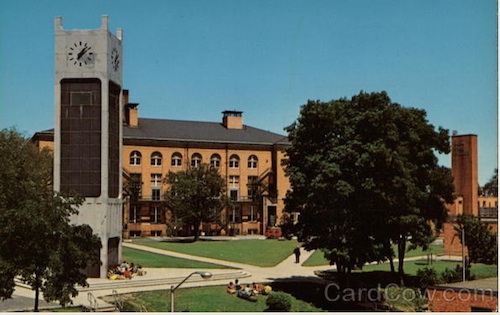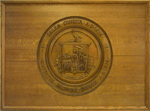Salem State College: Difference between revisions
No edit summary |
No edit summary |
||
| Line 6: | Line 6: | ||
Horace Mann Lab School, which student teachers use for training, was built nearby on Loring Avenue in 1912. | Horace Mann Lab School, which student teachers use for training, was built nearby on Loring Avenue in 1912. | ||
Started as a school primarily to educate future teachers, the college, now [[Salem State University]] has multiple majors, and is well-known for such majors as business and nursing. | Started as a school primarily to educate future teachers, the college, now [[Salem State University]] has multiple majors, and is well-known for such majors as business and nursing. | ||
[[Image:ClockTowerSalemState.jpg]] | |||
==See Also== | ==See Also== | ||
Revision as of 10:44, 14 September 2012
Salem State College began its life as Salem Normal School, dedicated on Sept. 14, 1854 and located on the corner of Broad and Summer Streets with seventy-two students.The school was for women only. The regular course of study took two years and tuition was free for those who "complied with the condition of teaching in the public schools of Massachusetts", according to Osgood in his book. The first building was enlarged in 1870 to accommodate increasing enrollment.
For details on past schools, Salem Normal School and pictures see Salem schools of the past.
A new facility on the corner of Loring Avenue and Lafayette Streets was built and dedicated Jan. 26,1897 (its present location). Horace Mann Lab School, which student teachers use for training, was built nearby on Loring Avenue in 1912. Started as a school primarily to educate future teachers, the college, now Salem State University has multiple majors, and is well-known for such majors as business and nursing.
See Also
- Wiki entry Salem State University
- Historical sketch of Salem by Charles S. Osgood, p.108-9.
- Illustrated History of Salem and environs p. 82-85 (photos)
- The Story of Essex County vol. 2, pp. 583-589.
- Illustrated history of Salem by Charles B. Gillespie, p. 82-83.

